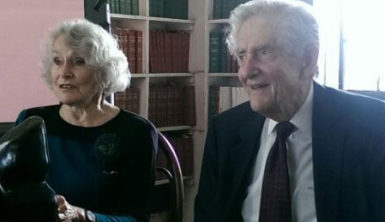United States Court of Appeals judge J Clifford Wallace is in Guyana assisting with the implementation of a case management system for judges that is expected to help them make a dent in the 10,000 backlogged cases.
Wallace, 88, is part of a visiting team from the United States that is helping with the implementation of the new civil procedure rules, which are expected to be in place by next month.
Wallace, who spoke with reporters last Friday, said case management and mediation for the High Courts are among the most important features of the new rules.
The judge explained that the idea behind case management involves the pace of litigation for a case, which should be decided by the judges and not the lawyers and which he said works and gets rid of backlogs.

Mediation, he added, also clears delays by seeking to broker an agreement between litigants instead of taking a chance to go before a judge. Wallace said they promote “win-win mediation,” which does not discuss the problem or the situation but focuses on the two parties’ history with each other to help get them back to their relationships before their problems.
“It’s a way of solving problems,” he said, while noting that a mediator does not need a legal background. He said this option only applied to civil matters and not criminal matters. Wallace, who has worked in 63 other countries and is due to travel to India next month to offer assistance there, noted that case management and mediation were implemented in Botswana, which had the same backlog problem like Guyana. Since the implementation of case management and mediation there, he said, the backlog was reduced by 80% in two years. He said he was confident that Botswana’s success can be replicated in Guyana.
Wallace hoped that in time the case management process will help judges, though he conceded that while it would be ideal to complete a case quickly, each one is unique and some are impossible to complete within a set timeframe. Nonetheless, he said that he is sure that once these rules are implemented, the system will change and the backlog in cases will decrease.
Alongside the new procedures, Wallace noted that judges need to be equipped with modern technology. He said that he is well aware that judges and magistrates make handwritten notes during trials, which is very time consuming. He said other recording systems should be used though he added that modern technologies are useful but are also very costly.
Wallace noted that apart from training for judges, investigators and prosecutors need training as well. In most instances, he said, investigators fail to complete files when they are brought before the courts and this ends up taking up a lot of time.
In an effort to ensure a speedy but due process, which is necessary for trial in court, Wallace said that he has encouraged judges to make their decisions immediately after a trial and not to wait until months afterward. He said he is well aware of what is going on in Guyana’s court system with the lengthy trials that run for years though he noted that such occurrences happen all over the world.





